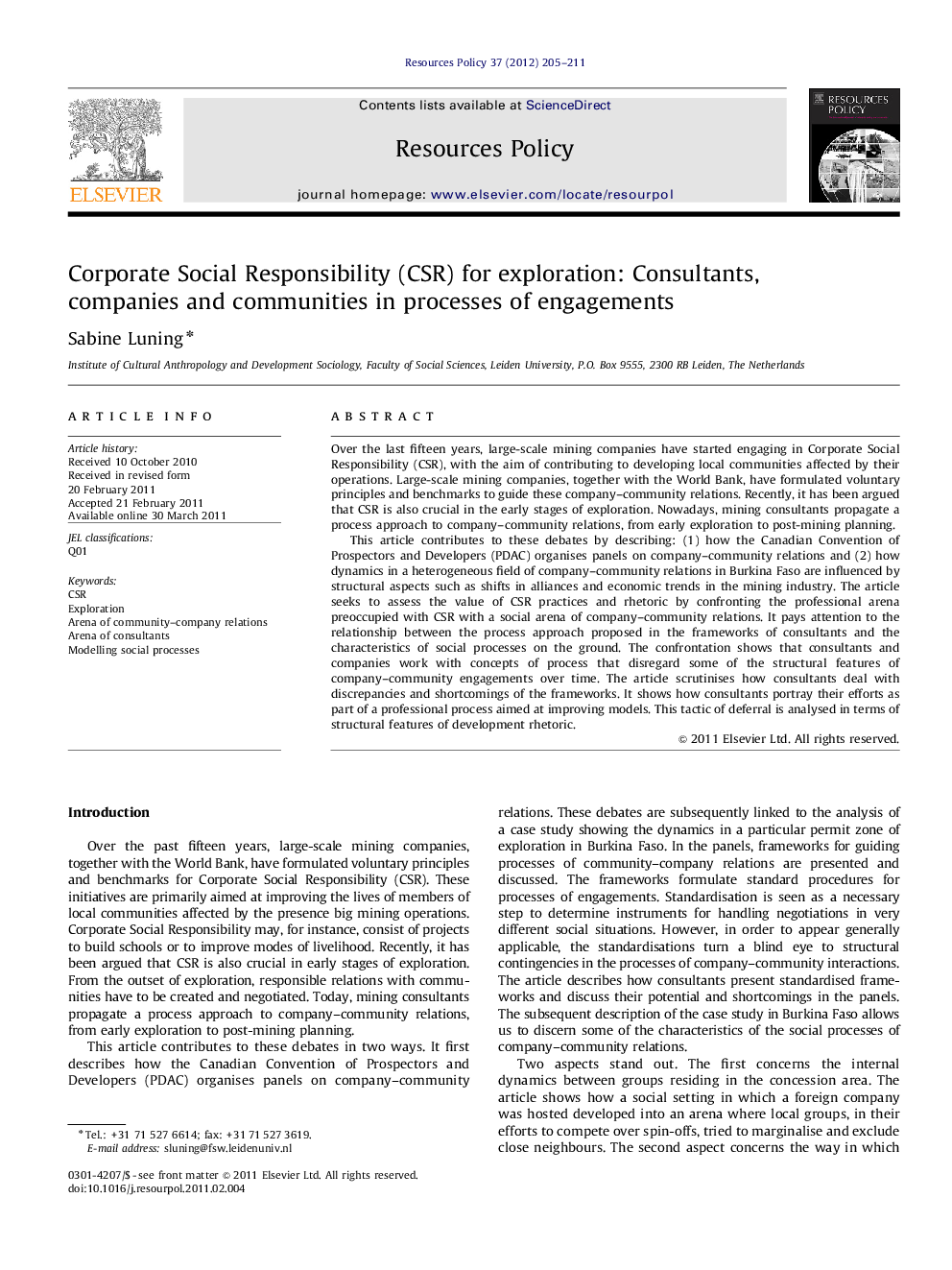| Article ID | Journal | Published Year | Pages | File Type |
|---|---|---|---|---|
| 985931 | Resources Policy | 2012 | 7 Pages |
Over the last fifteen years, large-scale mining companies have started engaging in Corporate Social Responsibility (CSR), with the aim of contributing to developing local communities affected by their operations. Large-scale mining companies, together with the World Bank, have formulated voluntary principles and benchmarks to guide these company–community relations. Recently, it has been argued that CSR is also crucial in the early stages of exploration. Nowadays, mining consultants propagate a process approach to company–community relations, from early exploration to post-mining planning.This article contributes to these debates by describing: (1) how the Canadian Convention of Prospectors and Developers (PDAC) organises panels on company–community relations and (2) how dynamics in a heterogeneous field of company–community relations in Burkina Faso are influenced by structural aspects such as shifts in alliances and economic trends in the mining industry. The article seeks to assess the value of CSR practices and rhetoric by confronting the professional arena preoccupied with CSR with a social arena of company–community relations. It pays attention to the relationship between the process approach proposed in the frameworks of consultants and the characteristics of social processes on the ground. The confrontation shows that consultants and companies work with concepts of process that disregard some of the structural features of company–community engagements over time. The article scrutinises how consultants deal with discrepancies and shortcomings of the frameworks. It shows how consultants portray their efforts as part of a professional process aimed at improving models. This tactic of deferral is analysed in terms of structural features of development rhetoric.
Research highlights► Frameworks for CSR fail to incorporate structural features of social processes. ► Effects of heterogeneity of social groups on social processes are underestimated. ► Idem for effects of booms and bust on social interactions near concession areas. ► Both conferences of consultants and arenas near concession areas are analysed. ► Expert knowledge relies on postponements into a future and amnesia of the past.
